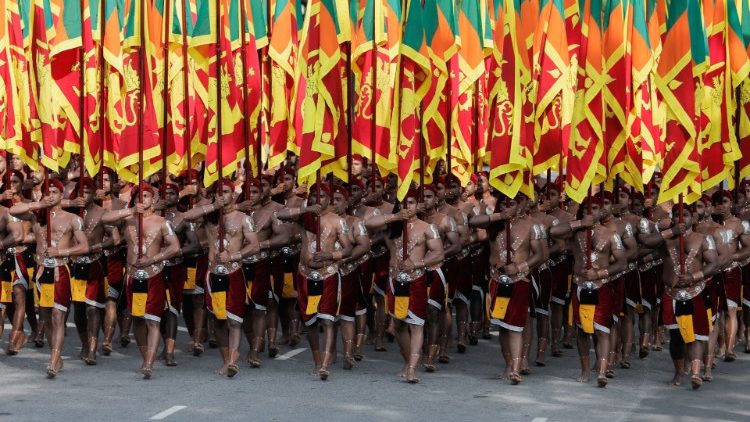There is the country’s current moral and economic crises in Sri Lanka now, and that’s why Sri Lanka’s religious leaders demand turnaround from politicians.
Among Sri Lanka’s religious leaders who have taken politicians to task for the country’s current moral and economic crises was Cardinal Malcolm Ranjith Colombo, Vatican News report. He denounced corruption and the failure of political leaders that are driving more people into poverty and forms of slavery.
Corruption, politicians’ failure
“Due to the shortsighted and unintelligent actions of political leaders, past and present, leading to the spread of a spirit of deep division and mistrust among the different ethnic and religious groups; and galloping corruption among those whom we have elected as our leaders and their manipulation of the rule of law to suit their own interests, people have begun to increasingly feel that independence has turned out to be a meaningless word,” – said Cardinal Ranjith on Friday, the 4th of February 2022.
Boycott of celebration
In the past, the 74-year-old cardinal has celebrated Mass at All Saints Church in Borella several times on Independence Day and also participated in the state function. But this year, he boycotted both events in protest against the failure of authorities to ensure justice for the victims of the 2019 Easter Sunday terrorist attacks and a lack of progress in the investigations into the recent finding of a grenade at All Saints Church.
After 130 years under British rule, Sri Lanka won its freedom on 4 February 1948, becoming the Dominion of Ceylon within the British Commonwealth. After 24 years, it became a republic on 22 May 1972 and was renamed the Republic of Sri Lanka.
Total transformation
Cardinal Ranjith said:
“It is not far from the truth when we state that the best way to strengthen the freedom gained with such sacrifices is to go for a radical change in our national agenda. If all of us commit ourselves to work for that transformation, it would be the best and most effective service we could render to our motherland.
At a moment like this, what all those who truly love our homeland should do is to engage in a profound examination of conscience. We should seek a total transformation of our society aiming to extricate our country from the effects of those decisions that led it on to this downward slide”.
Cash crunch
Sri Lanka marked this year’s Independence Day on Friday with President Gotabhaya Rajapaksa appealing to the country’s expatriates to send money home as its foreign reserves sink to dangerous lows.
The heart of the problem lies in the country’s mounting debt problem. The Gotabaya Rajapaksa-led government must service $7.3bn in foreign loans this year or default on its debt, a situation that could make it harder to borrow money in the future at affordable rates.
Because of the currency shortage, importers are unable to clear their cargo and manufacturers are unable to buy raw materials from overseas. Hence, Sri Lankans are facing shortages of milk powder, cooking gas, kerosene, and other essentials.
Cash shortages have worsened inflation, which surged to 12.1% in December. The pandemic has dealt a heavy blow to an economy that depends heavily on tourism and trade, with the government estimating a loss of $14 billion over the last two years.
A more representative government
Bishop Dushantha Lakshman Rodrigo, the Anglican bishop of Colombo, said it is important to begin the process of creating a new constitution that represents all communities.
“People have to fulfil their responsibilities properly rather than delegating responsibilities to others,” said Bishop Rodrigo.
He said that it is the responsibility and duty of all to empower the people and to create an environment conducive to the growth of every child.
Avoid divisive politics
“Everyone should understand why Sri Lanka has not been able to achieve the economic, political, and social progress achieved by many of the states that achieved independence during Sri Lanka’s independence,” – said Ven. Warakagoda Sri Gnanaratana Thera, chief Buddhist cleric of the Asgiriya Chapter.
Ven. Thibbatuwawe Sri Sumangala Thera, Buddhist leader of the Malwathu Chapter of the Siam Maha Nikaya, said it is necessary to put aside differences such as religion and politics and work in harmony and determination.
See also:
Persecution against Christians on the rise worldwide
